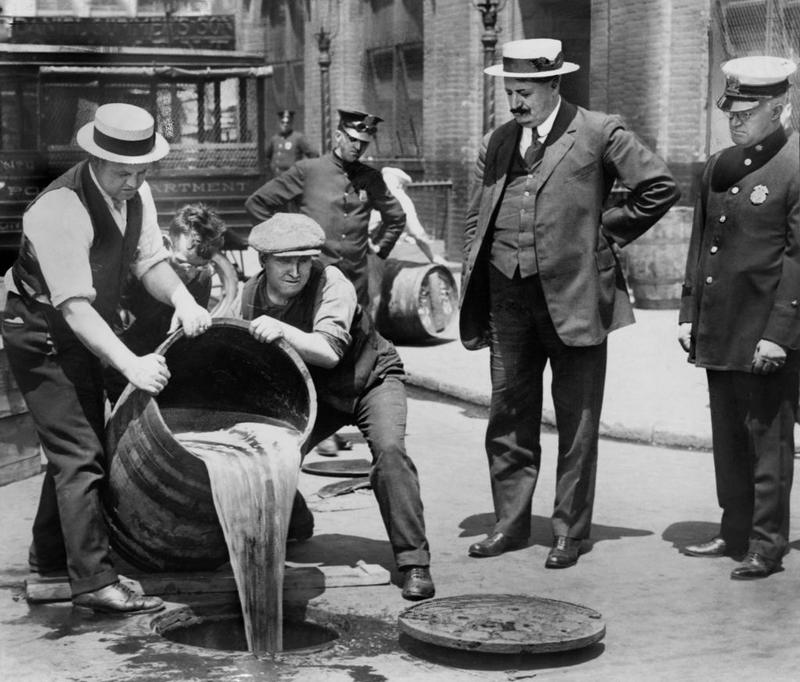The Man Who Made Prohibition Happen After Being Stabbed In The Leg By A Drunk Person
By | May 20, 2021

You probably don't know Wayne Wheeler's name, but he was largely responsible for one of the most chaotic times in American history, all because of a childhood grudge. That's right: Prohibition, and all the organized criminal madness that came with it, was made possible because this scrawny, bookish Midwesterner got in the way of a drunk's pitchfork.
That Fateful Stabbing
Wayne Wheeler was born on November 10, 1869 in rural Ohio, where he grew up on his family's farm. One night, when Wheeler was a child, one of the family's hired farmhands got drunk and tried to fight his boss and the other farm workers, and in the melee, young Wayne was stabbed in the leg with a pitchfork. Although his wound quickly healed, Wheeler blamed the incident on the consumption of alcohol, as he would later tell legislators and the public to great effect.

Passing Prohibition
During his time at Oberlin College, Wheeler regularly attended the local Congregational church, where he heard a lecture by Reverend Howard Hyde Russell one day in 1893. Russell, a lawyer-turned-clergyman-turned-motivational-speaker, was also the founder of the newly organized Anti-Saloon League, and Wheeler was so jazzed by his lecture that he immediately signed on to become one of the League's first full-time employees. In 1903, he took over as acting head, and the next year, he was named the group's full-time executive director. Under Wheeler's leadership, the Anti-Saloon League became one of the most effective political lobbying groups in U.S. history. They also took a tough stance on drinking. Wheeler carefully allied his group with several women's suffrage organizations to pressure lawmakers in Washington to address the issue of alcohol consumption.
Finally, after decades of work, Wheeler rejoiced as the 18th Amendment to the U.S. Constitution was ratified on January 16, 1919, banning the "manufacture, sale, and transportation" of all alcoholic and intoxicating liquors, but he wasn't done yet. He became instrumental in drafting the Volstead Act, the legislation that empowered authorities to enforce the 18th Amendment, and even extended his influence to the Bureau of Prohibition. This gave Wheeler power over hiring the enforcement officers and agents in charge of arresting people for violating Prohibition.

Fallen But Not Forgotten
By 1926, the 18th Amendment had become hard to enforce, and Wheeler and Congress faced mounting criticism from the American public. In a desperate last stand, the Bureau of Prohibition began to add poison to the industrial alcohol that bootleggers had begun using to make moonshine and other makeshift liquors, with Wheeler specifically objecting to the use of non-lethal substances like soap to make the alcohol unappealing but survivable.
Somewhere between 10,000 and 50,000 people died from drinking alcohol that had been poisoned by the Bureau of Prohibition, but Wheeler seemed unaffected by these staggering numbers, arguing that the victims had essentially committed suicide by knowingly drinking illegal alcohol. The American people were shocked by Wheeler's callousness and began scorning his Anti-Saloon League. Wheeler's power in Washington disintegrated, greatly influencing the passage of the 21st Amendment to repeal Prohibition.
Wayne Wheeler lives on in modern lobbying, however, with the "Wheelerism" approach, a method of focusing political pressure on a single issue by using the media to illustrate the public's view or inflate its urgency, if needed. Although the bulk of advocates and lobbyists who take the Wheelerism approach simply aim to persuade politicians, some—especially in the early days—have threatened to reveal embarrassing personal information about or withhold a political endorsement or financial backing from those who resisted. The term "Wheelerism" is still used today.

